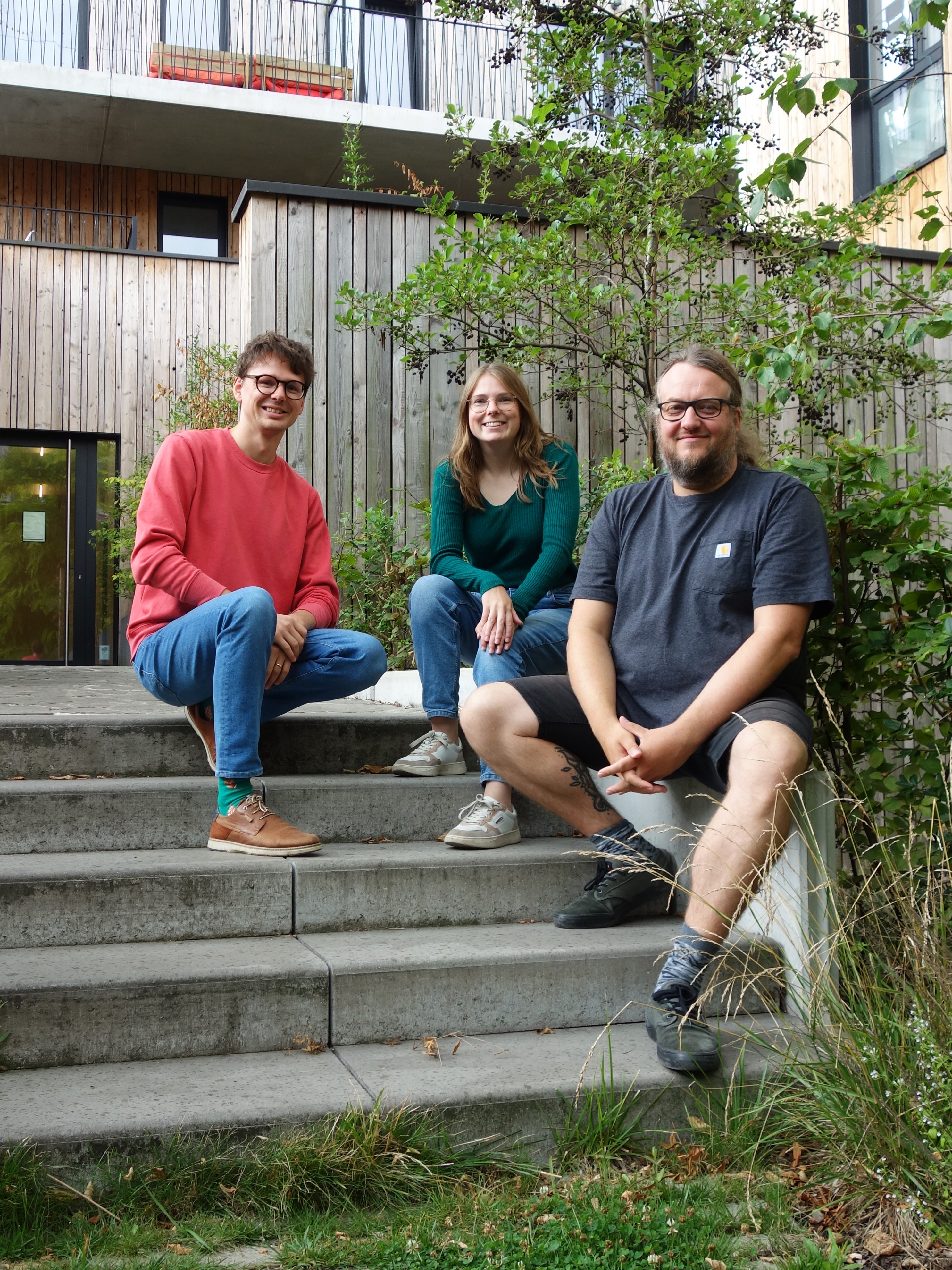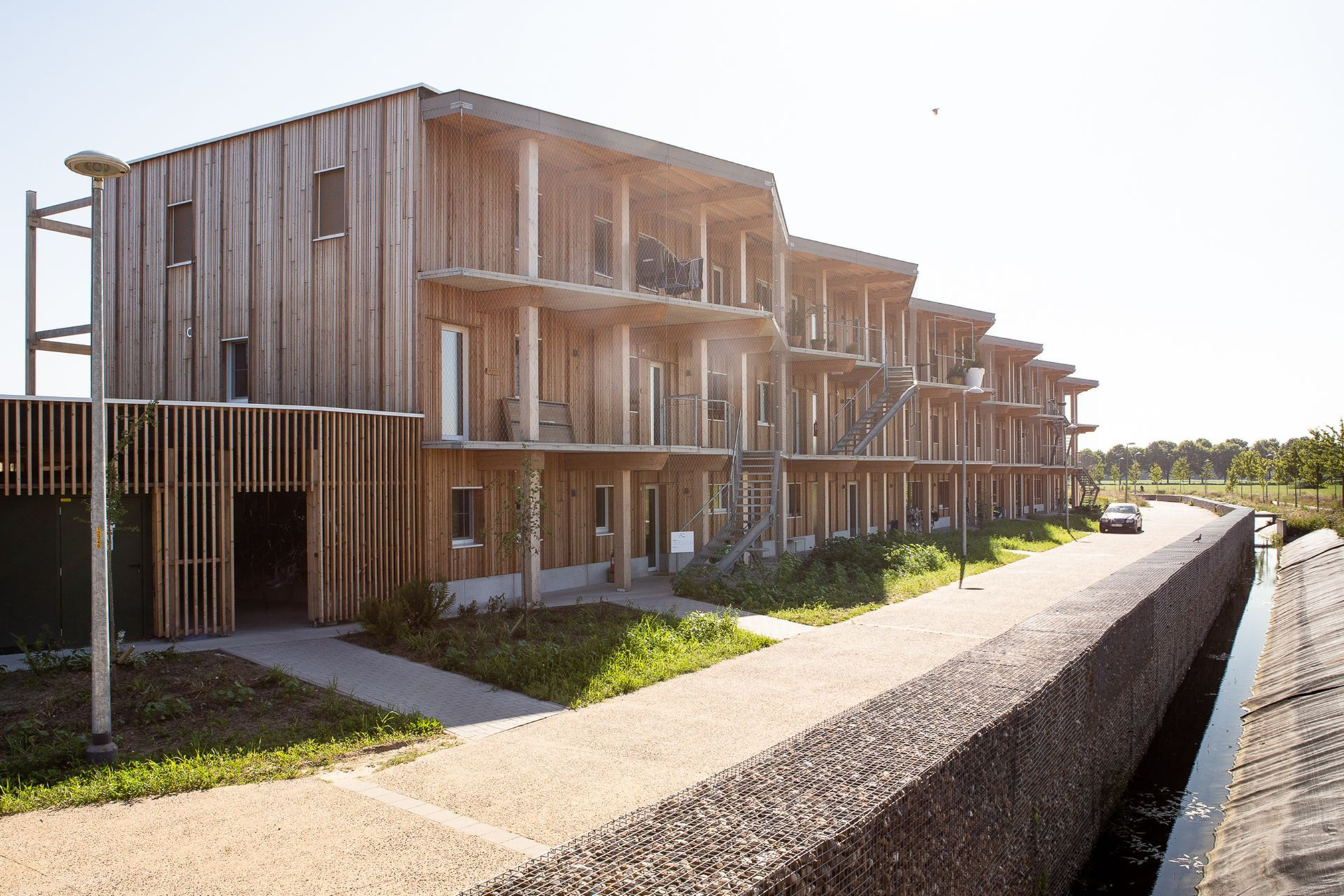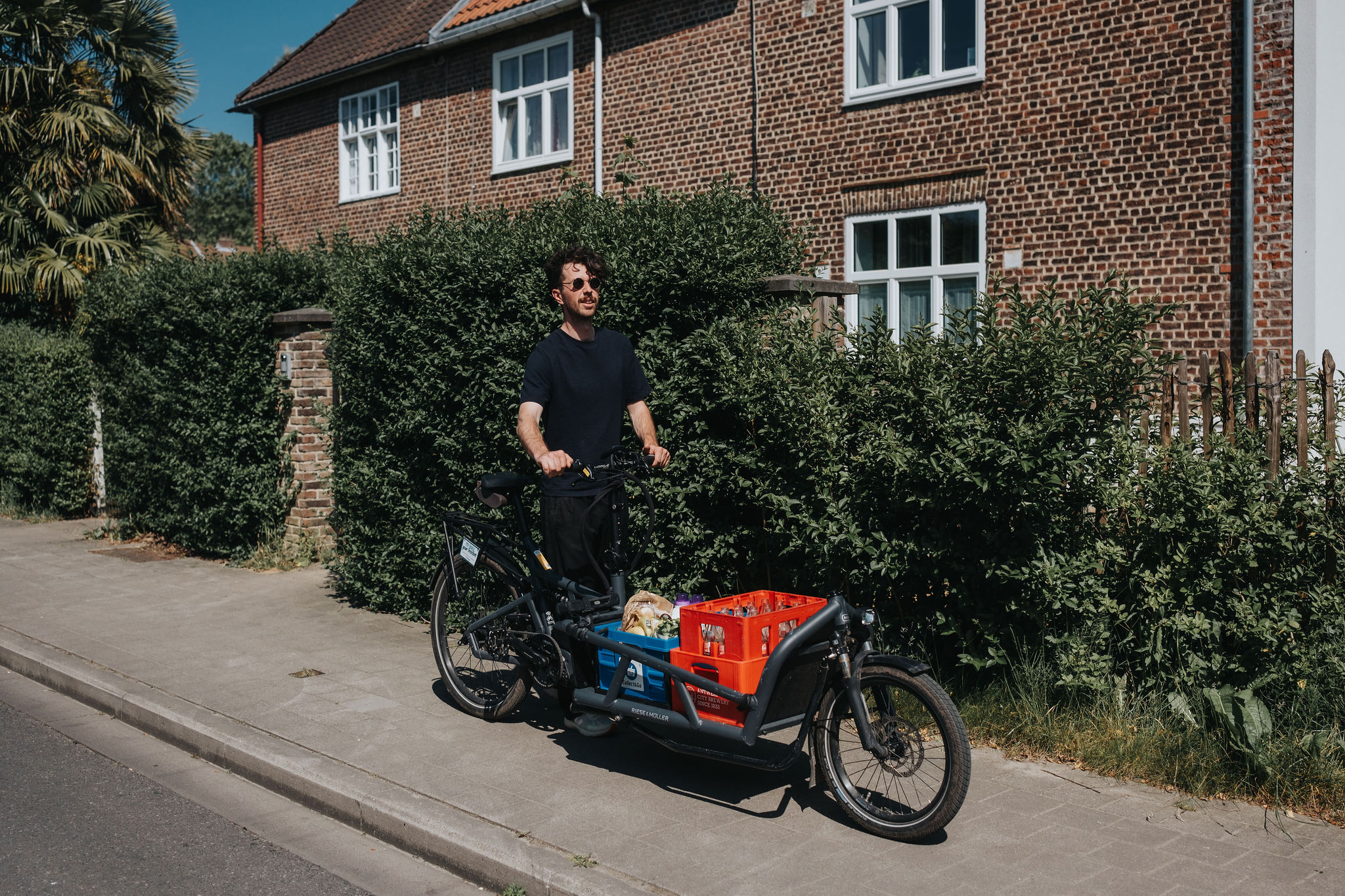Mpact is a Belgian non-profit organisation that develops solutions for sharing rides, vehicles and holidays. In this interview with Eva Missinne and Jelten Baguet, we learn more about Mpact and their role in the SHARE-North Squared project.
Welcome, Eva and Jelten!
Tell us more about yourself and Mpact.
Jelten | Mpact is a Belgian shared mobility provider as well as an incubator for new ideas regarding shared mobility solutions. We develop and operate platforms for vehicle sharing, social transport, and carpooling.
We are involved in the project in two roles. Firstly, we are the communication lead: we manage the website and LinkedIn page, organise webinars, record ‘The Car Diet’ podcast, develop communication materials, and more.
I am responsible for the external communication of the SN² project. We also run a pilot related to one of our platforms, Cozywheels. My colleague Eva Missinne is taking care of this. Our project director, Tjalle Groen, coordinates our work in SN².
Eva | We find it important to bring our expertise as a shared mobility incubator and operator into the project. Cozywheels is an example of this: it is a peer-to-peer platform for sharing cars, cargo bikes, e-bikes, minivans and adapted vehicles between neighbours.
Vehicle owners can form closed groups via Cozywheels. When their vehicle is not being used, they can share it with other members of their group. It allows them to reduce the costs of vehicle ownership and unlocks vehicles for neighbours who do not wish to own one. Sharing vehicles also stimulates social interactions between neighbours, for instance when exchanging keys.
In SN², we focus on developing Cozywheels as a solution for cohousing and new housing developments. We are also one of the signatories of the Flemish Green Deal ‘Shared Mobility and Housing’, which is connected to SN².

The M-team: Jelten Baguet, Eva Missinne, and Tjalle Groen (copyright: Mpact).
How did you get involved in SN²?
Jelten | Mpact was one of the core partners of the SHARE-North project (2014-2020) together with Bremen and others. We were keen on developing a follow-up project for this. So, when the idea of the SHARE-North Squared project started to materialise, we did not hesitate to join the consortium. After all, the objectives of SN² perfectly fit with Mpact’s ambition to have a positive impact on society and the environment through sharing vehicles.
Also, working with Bremen was a very positive experience during SHARE-North, making it a no-brainer to join the project.
Eva | We are of course honoured to participate in the successor of the impactful SHARE-North project. As an organisation, Mpact constantly wants to innovate to make sustainable and shared mobility more known, used, and inclusive. We believe that the best way to do this is in a European framework as it allows us to exchange best practices across borders.
What do you hope to achieve in this project?
Eva | In general, we are inspired by the best practices and 'lessons learned' from the SN² project partners. This leads to the improvement of our platforms and maybe to the development of new services that contribute to more sustainable and liveable cities.
Specifically for our pilot project, we aim to gain more knowledge on successful strategies for integrating shared mobility into residential developments. Cozywheels has already been instrumental in facilitating vehicle sharing between neighbours. Now, we want to develop this concept further in the context of cohousing and housing projects. The expertise and feedback of the different project partners is valuable in this respect.
Cozywheels is instrumental in facilitating vehicle sharing between neighbours. Now, we develop this concept further in the context of cohousing projects.

'Cohousing Waasland' in Sint-Niklaas shares vehicles via Cozywheels (copyright: Cohousing Waasland).
What is your biggest contribution to SN²?
Jelten | As the project’s communication lead, we are proud of our diversified communication strategy. We do not just manage the website and LinkedIn-page, but also organise webinars, host a podcast called ‘the Low Car Diet’, and developed an award-winning video animation together with Bremen. We want to make sure that all the project partners get sufficient visibility through these channels.
By combining ‘reading’, ‘watching’ and ‘listening’, we reach a diverse audience, among which urban planners, mobility experts, real estate developers, consultants, academics, shared mobility providers, policy makers, etc. In short, our biggest contribution communication-wise is making the project as visible as possible and supporting all partners with their projects as well.
Eva | With our Cozywheels pilot, we believe that we can inform and inspire other partners about peer-to-peer car sharing. During our partner meetings, we observed that most of the conversations develop around station-based solutions offered by commercial providers. Services related to private vehicle sharing are unknown or even inexistent in other countries, and private car sharing is mostly not supported by a sharing platform.
We believe that platforms like Cozywheels, which make it possible to share all kinds of vehicles in closed groups, are a useful concept to integrate into (co)housing developments.
What are you currently working on?
Eva | In our Cozywheels pilot we focus on how we can successfully motivate cohousing groups to share their vehicles with other inhabitants. Since the start of the SN² project, we had several new cohousing initiatives that started using Cozywheels and that are actively sharing vehicles.
All the inhabitants of our new and existing cohousing projects have received an evaluation form. Their feedback helps us to make Cozywheels more appealing and more user-friendly for (new) cohousing groups. We are also developing a communication package for cohousings that consider sharing vehicles via the Cozywheels platform.

All types of vehicles can be shared via Cozywheels, including cargo bikes (copyright: Mpact)
What are your 'lessons learned'?
Jelten - On the level of the project, our main learning is that shared mobility is still something new for many people. It therefore remains important to keep shared mobility top-of-mind, and to promote it towards the end-user, policy makers, and housing developers.
Plenty of people remain car dependent and parking spaces still take up a lot of public space. It is therefore essential that we and like-minded organisations in the mobility ecosystem try to change the narrative about urban space and show that you can do more with 12m² than just making a parking spot out of it.
It is essential that we and like-minded organisations try to change the narrative about urban space and show that you can do more with 12m² than just making a parking spot out of it.
Eva - On the level of our pilot, the most important lesson so far is that integrating shared mobility into residential projects works best when the demand is bottom-up driven. Project developers often implement shared mobility solutions without knowing the needs of future residents, which can result in the shared vehicle not being used effectively.
With Cozywheels for example, we had to end a collaboration with a project developer after one year because most of the residents turned out to have company cars and had no interest in using shared vehicles. As a result, our focus has shifted throughout the project towards working with existing cohousing groups, where the demand for shared mobility comes directly from the people living there and who are actually willing to make use of it.
Thanks Eva and Jelten for sharing your insights!
Pictures provided by Mpact and Cohousing Waasland.